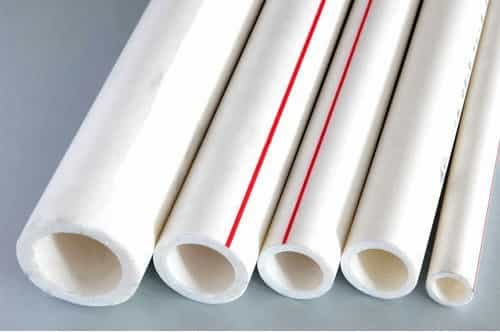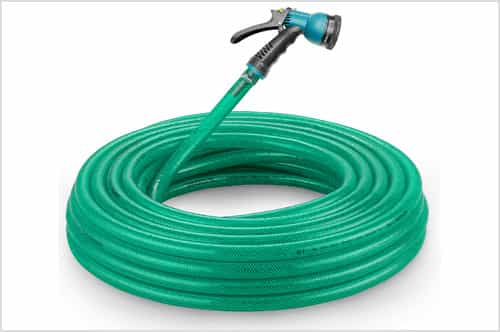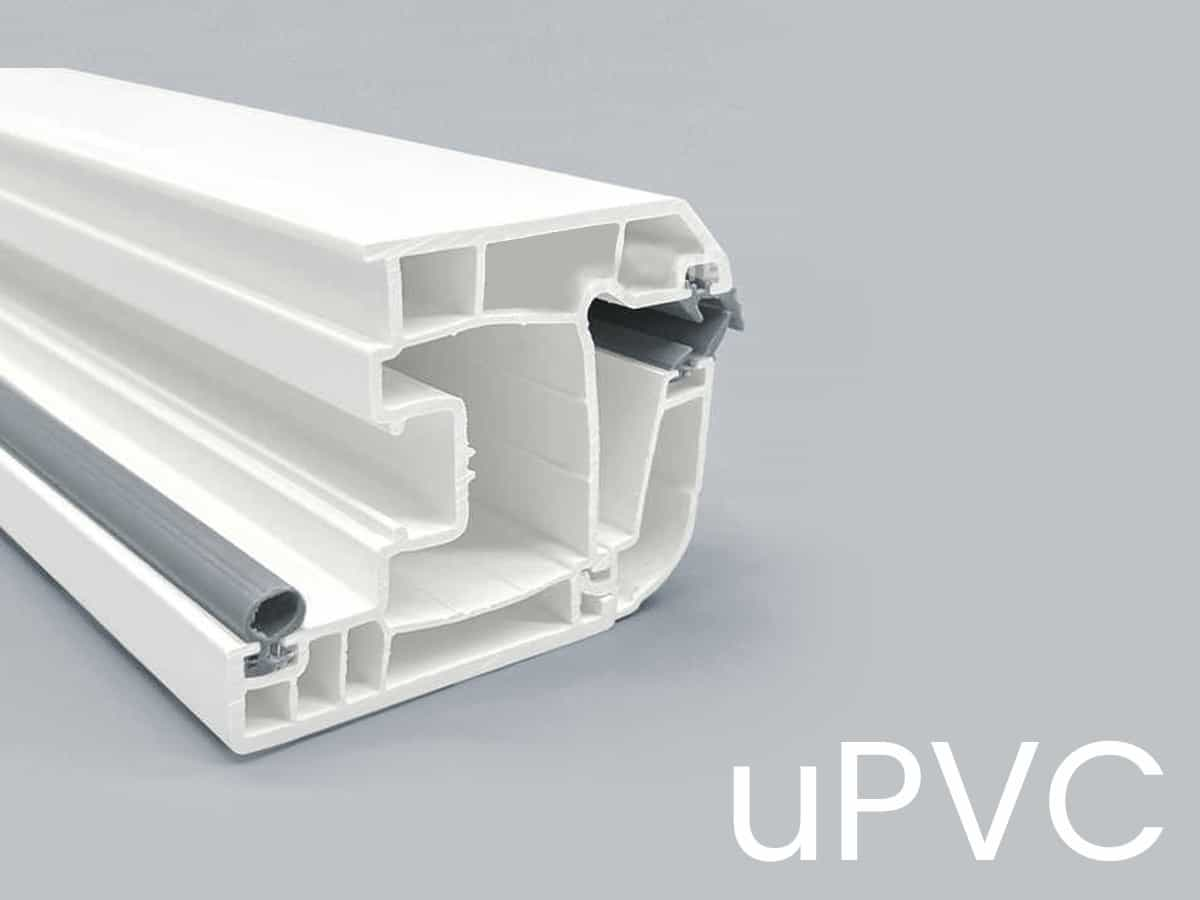uPVC’s Full Form
The full form of uPVC is Unplasticized Polyvinyl Chloride. It is a type of rigid (or hard) plastic commonly used to manufacture door, window frames, water and drainage pipes, and other building materials for the construction industry. Learn more from here about uPVC.
Why is uPVC hard?
uPVC is the initial form of PVC, and it is naturally rigid because no plasticizers are added during its production. “Unplasticized” means it remains in its hard and durable state.
When plasticizers (chemicals that make plastic softer and more flexible) are added to uPVC, it becomes PVC (Polyvinyl Chloride), which is softer and used for different applications.
Examples of Products Made from uPVC and PVC:


The Use of uPVC in Construction
Windows and Doors

uPVC’s resilience against harsh weather conditions, coupled with its low maintenance requirements, makes it a popular choice for manufacturing windows and doors. Its excellent thermal insulation properties contribute to energy efficiency in buildings.
Piping Systems
In plumbing, uPVC pipes are favoured for their corrosion resistance, ensuring longevity and reliability in water supply systems. Their smooth inner surface prevents scaling and ensures the efficient flow of water.
Cladding and Roofing
uPVC’s resistance to rot, corrosion, and fading makes it an ideal material for cladding and roofing applications. Its lightweight nature simplifies installation while offering robust protection against the elements.
uPVC in Other Industries
Automotive Sector
UPVC finds applications in the automotive industry, particularly in manufacturing interior trim components, due to its durability, ease of moulding, and resistance to abrasion.
Medical Devices
The non-toxic nature of uPVC makes it suitable for medical devices and equipment, where cleanliness and safety are paramount. Its compatibility with sterilization processes further enhances its utility in healthcare settings.
Environmental
uPVC’s sustainability extends beyond its durability and recyclability. Its low carbon footprint and energy-efficient properties contribute to environmentally conscious construction practices, aligning with global efforts towards sustainability.
Discover how uPVC doors and windows improve energy efficiency and save on energy costs. Read the full article here.
uPVC and PVC-u, Facts & Myths
Many people think uPVC and PVC-u are the same, but there’s a key difference. Also, does uPVC affect indoor air quality? Find out the truth vs myths in these articles:
1. The truth about uPVC and indoor air quality (IAQ) Facts & Myths: https://upvcmagazine.com/upvc/facts/upvc-windows-indoor-air-quality-facts-vs-myths.html
2. uPVC vs PVC-u – The real difference: https://upvcmagazine.com/upvc/the-difference-between-upvc-and-pvc-u.html
In essence, uPVC, or Unplasticized Polyvinyl Chloride, embodies resilience, versatility, and sustainability across diverse industries. From construction to automotive and healthcare sectors, uPVC continues to redefine standards in durability and performance. Embracing uPVC not only ensures longevity and efficiency but also signifies a commitment to environmental stewardship in the modern era.

